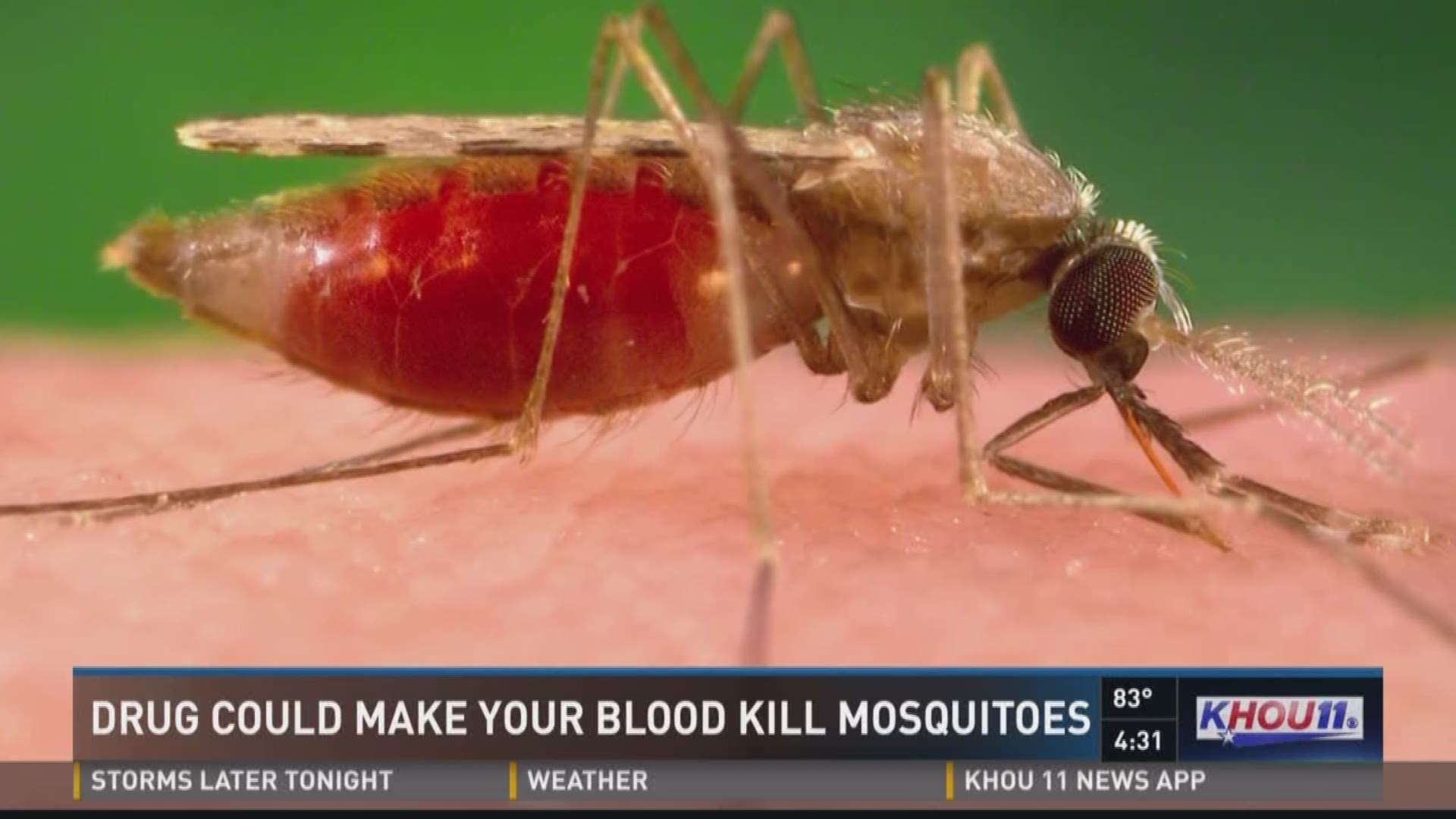HOUSTON — A drug that’s been around for decades, scientists are learning could quite possibly be a game changer when it comes to fighting mosquitoes.
It was inside a lab in Kenya when it first happened. A drug you’ve probably never heard of called Ivermectin, caused an effect that may sound appealing to many Texans - mosquitocidal.
“They gave human volunteers doses of Ivermectin, and were able to show that if they took the blood from those individuals who were treated with Ivermectin, that blood when they gave it to mosquitoes was actually able to kill those mosquitoes," Dr. Peter Hotez, Dean of the National School of Tropical Medicine for Baylor College of Medicine, said.
A drug that’s not harmful to humans, but when mixed in our bodies, becomes deadly to blood-thirsty mosquitoes.
“It actually directly attacks the parasite, and it’s ability to live," Dr. Hotez said.
Dr. Hotez has used Ivermectin before. He used it twenty years ago, when he was researching how to treat two diseases, river blindness and elephantiasis, in Africa.
“We’ve reduced the prevalence of river blindness and elephantiasis by 30 to 40 percent globally. So it really is making an impact so that’s very exciting," Dr. Hotez said.
The drug works. He’s helped prove that. What’s next is to prove if it works in this study.
So far, it’s only been done in a lab. Next, is a clinical trial in the field starting with a disease endemic setting, like Africa.
“Until a malaria vaccine is developed, I think this potentially could be an added new modality to the control of malaria," Dr. Hotez said.
Then, he says maybe, it can come to Texas to fight diseases here, like West Nile Virus and Zika.
“The question is would this approach be an alternative strategy to prevent some of those disease, and that would be very interesting to look at," Dr. Hotez said.
The clinical trial portion of the study will happen next. Dr. Hotez says it could be a few years until we see any of those results.

